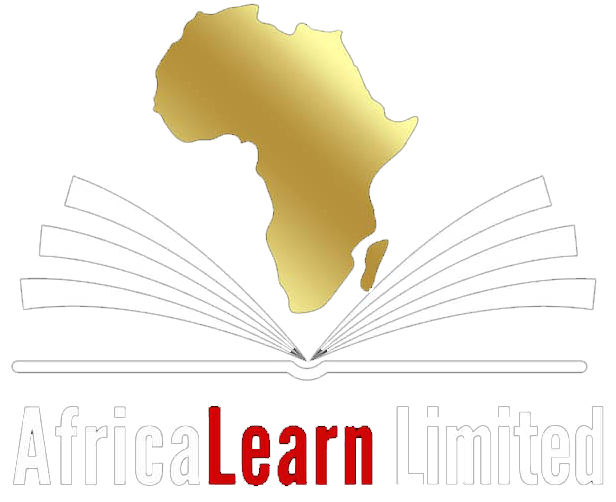|
Listen to this article now
Getting your Trinity Audio player ready...
|
How often we are told to think outside the proverbial box… Well, today is a tale within a box, a story of Henry Brown. Henry Brown was born enslaved, on a plantation in Louisa County, Virginia, in 1815. The thing goes (skrrrahh!, pap pap ka-ka-ka! Skidiki-pap-pap! Skya! …). Literally the story. Funny, well not exactly humorous though! When the young, enslaved man was barely thirty years, after a lifetime of having suffered from the humiliation of slavery, he committed to finding liberty after his wife and four children were ceased and forcibly sold and shipped to another plantation in 1848.
For the record, this is no fiction. Henry Brown is a real historical figure of African descent, enslaved and abused all his life. Imagine for a minute that you are Henry Brown, born enslaved and now your wife and four children are forcibly ceased and sold. What will you do? Well, the real question may be, what can you do? It appears the whole ‘system’ is set up against you, engineered to perpetuate your doom. How do you fight the rich and powerful as a poor enslaved person?
I will tell you what Henry “Box” Brown did. As an active church member, he trusted some friends to ship him in a wooden box to Philadelphia, where slavery had been abolished. On March 23, 1849, Henry Brown was shipped in a box, labelled as “dry goods,” enduring a 27-hour trip. The tale recounts that during some part of the trip, his box was placed upside down on the deck of a steamship. Henry Brown had to sit on his head for about two hours. Imagine how his eyes must have felt within its socket. Try resting your head on your bed, with your legs against your cosy walls for just 2minutes (Now that may be funny). He was delivered as a parcel to the headquarters of the Philadelphia Anti-Slavery Society, barely surviving the trip. The story says, after emerging from the box, Henry Brown recited a psalm. Well, I have me a little Psalm too:
“Not a blacksmith could be found in the whole land of Israel, because the Philistines had said, “Otherwise the Hebrews will make swords or spears!” So, all Israel went down to the Philistines to have their plow points, mattocks, axes and sickles sharpened. The price was two-thirds of a shekel for sharpening plow points and mattocks, and a third of a shekel for sharpening forks and axes and for repointing goads. So, on the day of the battle not a soldier with Saul and Jonathan had a sword or spear in his hand; only Saul and his son Jonathan had them.” 1 Samuel 13:19-22
Oops, not quite a psalm, a dirge! Actually, it may depend on whether or not you are the enslaved in my little psalm above. Stories of slavers and the pursuit of liberty. I ended 2020 with an article that summarised my own journey of pursuing liberty from a 10 by 9(1/4) hand measure room behind the shop I slept in, in 2010, Reflecting on 2021 and the Next Decade – Yield to the journey | AfricaLearn. An article that received republication by many news outlets including Daily Graphic (Reflecting on 2021 and the Next Decade – Yield to the journey – Graphic Online). The story of Henry Brown is not only a slave story, it is a human story, a story I am sure readers can relate to, a story of which similitude is told in 1st Samuel 13.
Saul is a thirty-year-old man who is named the first king of a people called the ‘Chosen of God’, a people whose evidence of their election as God’s people was their enslavement by the Philistines. Saul becomes a king who must wage war for liberty with a people who had no swords or military training, a generation without Blacksmiths.
Blacksmith. Black and Smith. Where do we begin? Smith! Just maybe because it sounds like a name of a slaver. Smith is from an old English root which referred to a “handicraftsman, practitioner of skilled manual arts”. The Smith was therefore a skilled worker who harnessed fire and ice to forge meaningful and useful work by hammering on an anvil. Smiths are master craftsmen who knew how to mould through the heat of the furnace, the cold of the ice and incessant hammering on the anvil. Iron was the starting point. Iron was known for many generations as the ‘black metal’ which brings me to what has become synonymous with the enslaved: Black.
Black has been used in all the negative ways; the narrative of ‘Black’ has been so shaped that it is almost an anathema to be descriptive of a person. The untold part of the story is that ‘Black’ is from the root ‘bhel’ which is “to shine, flash or burn.” Uh huh. Shine, flash or burn. That is really what Black means. For the Old English, ‘Blac’ was therefore “bright, shining, glittering, pale;”[1] the connecting notions being, perhaps, “fire” (bright) and “burned” (dark). The question therefore is, at what point did the narrative vary so significantly in its usage that it became known of a colour devoid of light or a reference to evil? That my friend is at the heart of this my new year’s message, Cultural Supply.
Before I conclude on my theory of cultural supply, let me take two necessary detours. First is, the meaningfulness of who owns the future and whether you should strive for the ‘future’ and second is the past and whether history ever matters for who will own the estate called future.
I had a rare privilege of visiting two mining communities in Ghana in 2021. Both mines are owned by two different Global Corporations in two different parts of Ghana. The underdevelopment in the communities is apparent, almost unbelievable to think tonnes of gold are mined from under their feet daily. The road networks to both communities are some of the worst I have ever used in Ghana. On the first journey, I engaged the driver who comes from the community in a conversation. I asked him why he thought there was so much poverty for such a rich community. I walked away from that conversation concluding that: Most of us walk on gold literally but do nothing with that privilege, we pray and hope to die someday so we can go to heaven and walk on gold. We are supplied a culture of hope, a narrative in exchange for the best of our resources from under our feet. We trade riches for pittance in pursuit of an illusion. It was even clearer to me from my trip to the second community that, the estate called the future is not owned by the one who has the tangible ‘resources’ but the one who supplies the narrative for meaning and usefulness; Smiths, skilled in forging meaning and usefulness – harnessing our heat, cold and incessant hammering for value.
As a matter of record, I am a grandson of a Blacksmith. My paternal grandfather, Nana Kwame Teko Okyere, whose Smithing shop still sits at Duayaw Nkwanta was a known and very respected skilled craftsman. This was a shop I played around growing up some decades ago. My grandfather died on 21st December 1991 when I was barely 5 years old. Only three generations away from him, I have witnessed his place of changing the narrative of black metals into valuable objects degenerate as only one of his sons learnt the trade and barely practiced it and no one from all his grandchildren took after the craft. A place in history that could have easily become the foundry of the future is only a relic in history because everyone nudged the future away from their heritage in pursuit of the illusion of hope in a white- and blue-collar job. I have cousins and family who could have benefited from a heritage of the ‘Sons of the Smith’ and yet we wallow in pursuit of hope. We could have been the Carnegies of Africa championing steel, if only we knew how to build from the past and not give it up.
To conclude, note the following:
- That the Israelites ‘went down to the Philistines’. Oppressed and yet dependent on the oppressor, so functionally dependent that even the sharpening of objects was outsourced to the very people who enslaved them.
- That the price point was a means by which the Israelites enriched the Philistines. We are told that the value of the average labourer circa 1800 BC was about ten shekels per year of work. Two-thirds a shekel was therefore almost a month’s wage to sharpen an object.
- That swords which was basic for any warfare had become a symbol of status by the Israelites, only wielded by the King and his sons and yet it was going to take more to win the battle than two well-prepared royals.
We have been supplied a narrative of a culture where we must depend on some race for everything that is necessary for our survival but whiles we pursue those cultural ideals, we must labour for months to afford the basics supplied in that culture and ‘aw’ remember affording the bare minimum does become a ‘status’ badge for our already buffeted notion of self and heritage.
2022 is now upon us and we must make an election to own the estate of this parcel of the future. The question is will you be a Smith or a Cultural Consumer? My name is Yaw Sompa, I am a Son of a Smith and I wish you a fruitful new year.
P.S: When Henry Brown escaped, there was a huge debate among the abolitionist leaders as to whether or not the experience of his escape should be kept private or publicised. Henry ‘Box’ Brown became a performer and a magician – a performer of his escape. The legislation of the Fugitive Slave Act just a year after his escape made Brown a fugitive who had to move to England with his newfound performance, only to return to United States 25 years after as a celebrated magician. Morale – Tell your story as a Smith curating Change!



Interesting history! I take the question as to whether I wanna be a Smith or a cultural consumer as a rhetoric one. Great read as always. Happy new year 💃
Great piece Yaw Sompa, very thought provoking and and yes, I choose to own my estate